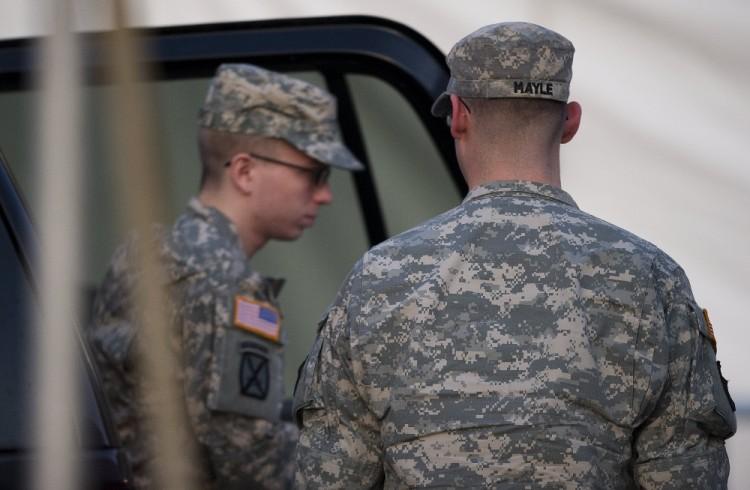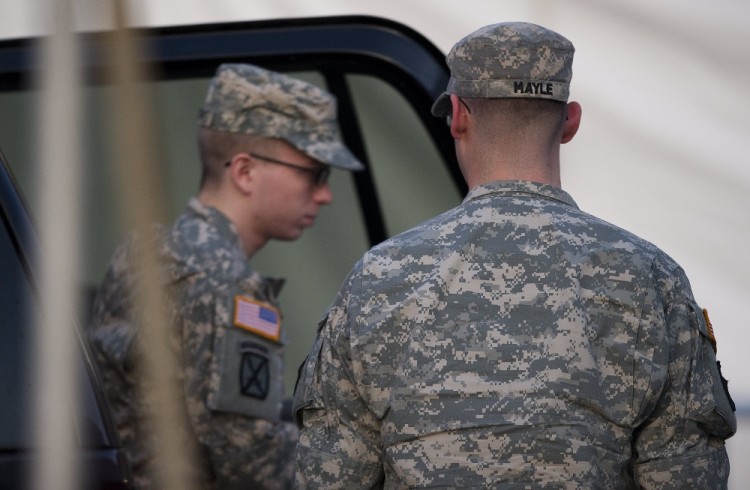Media reporting on the impact of hundreds of thousands of secret documents leaked by WikiLeaks is centered mostly on the information’s direct effect on human life. Military discussions over the ramifications of the leaks, however, center around the documents revealing how the government operates, and this will be a crucial point in the trial of Pfc. Bradley Manning who allegedly leaked the files.
In the eyes of the military, the leaks had a detrimental effect on the global war on terror. Aside from revealing how the military operates and what their interests are—vital information that’s a key target of espionage—it has reshaped structures of global alliances in anti-terror operations.
“A lot of the secret alliances that we have around the world are common knowledge now,” said Terry Minarcin, a retired Air Force cryptologist assigned to the National Security Agency (NSA).
The fallout of the leaks is already being seen—the Extraordinary Rendition has been exposed, and so its structure will either need to change or a different approach will have to be created.
Meanwhile, the job of forming secret alliances for the war on terror has switched hands from the Department of State to the Department of Defense. “A lot of the papers that Manning leaked dealt with the Extraordinary Rendition, and just about made it worthless now,” he said.
In the 1990s, the Central Intelligence Agency (CIA) rallied with other government agencies to create the Extraordinary Rendition, allowing them to transfer foreign nationals who are suspected terrorists to countries where they can detain and interrogate them.
Interrogations can be carried out either by U.S. personnel, or by foreign agents. “In both instances, interrogation methods are employed that do not comport with federal and internationally recognized standards,” states a report from the American Civil Liberties Union (ACLU).
The policy was expanded, however, following the terrorist attacks on Sept. 11, 2001. “In the words of former CIA agent Robert Baer: ‘If you want a serious interrogation, you send a prisoner to Jordan. If you want them to be tortured, you send them to Syria. If you want someone to disappear—never to see them again—you send them to Egypt,’” states the ACLU.
“That was one of our key plays in the war on terror; the Extraordinary Rendition,” Minarcin said. “They still look at Manning as a Daniel Ellsberg, with the Pentagon Papers, and they seem to forget that a lot of the war on terror, it has to take place behind closed doors.”
“We can’t do that anymore because that was compromised,” he said, adding “With the breadth and depth that has been exposed in the entire clandestine war on terror, we'd have to either cover our tracks better, or just forget about that avenue of exploitation of information.”
WikiLeaks releasing the State Department cables, which exposed raw discussions of global diplomacy, also rocked the State Department’s involvement with such operations, shifting more power to the Department of Defense.
“The State Department is no longer on board with the war on terror, because so many of the agreements that we had … WikiLeaks cut it, undermined it,” Minarcin said.
“Then Panetta stepped into the void and brought the Department of Defense into unparalleled power in the cabinet,” he said. “It should never be that way. Each one has their own niche in the government, and that’s the way it should be. WikiLeaks really destroyed that.”
Spy Games
While these were the most immediate impacts of the leaks, the more serious effect relates to global espionage. WikiLeaks provided every U.S. adversary with intelligence that could have taken years to obtain otherwise.
The information exposed the diplomatic process and the military’s TTPs (Tactics, Techniques, and Procedures).
“That kind of stuff is what keeps us good at what we do—by keeping that information closed,” said senior intelligence consultant Drew Berquist, author of “The Maverick Experiment,” in an earlier interview.
“Our biggest thing we try to protect, more than anything—more than a person’s real name, more than a person’s home address, more than any of that stuff—is how we operate, how we get things done, what our capabilities are,” Berquist said.
A key purpose of espionage is to understand the full infrastructure of a possible adversary, their relations and discussions with other countries, and to learn what they care about and how they react to different scenarios.
Intelligence then uses that information to predict how a country or group would react to a certain scenario or military operations, based on their past reactions—information about the U.S. that WikiLeaks handed to everyone on a silver platter.
“That’s what makes WikiLeaks so dangerous,” Berquist said. “It shows people how we communicate, how we operate, what we think of others, what we say behind closed doors—that makes it a tough deal for us when we’re trying to work with people.
Berquist used the analogy of playing a board game. Players try to figure out what the other players are doing, and they want to know what their weak points are so they can win. “If we let the enemy know how we do things, it gives them our weaknesses, it gives them how they can attack the problem,” he said.
“It goes to a national security and safety level. If we let people know how we do things, they can exploit it.”







